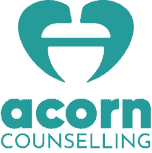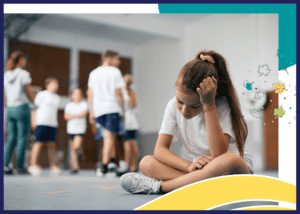
What DOES Work?
This is a loaded question, since child anxiety manifests differently for different people. Usually, it is not just one answer either, and a number of things together can be most effective. These things should touch on each aspect of anxiety you read about so far, including biological or “body-based” techniques, cognitive strategies, relational aspects, and behavioural interventions. Not one of these alone will treat anxiety, and a combination of all is most effective.
Healthy Living
This is a very basic, but keeping your body and mind healthy and strong can be so good for anxiety and other mental health challenges. Being well-rounded and focusing on all our basic needs including physical, emotional, spiritual, intellectual aspects. Things like
- Exercise or move your body regularly
- Eat healthy meals (most of the time)
- Have a regular sleep and bedtime routine
- See family and friends
- Engage in hobbies and activities, learn new skills
- Use your creativity! Art, music, painting, dance, any creative expression
Working with the Body
Anxiety lives in the body. It causes many physical changes that prepare the body to fight, flee or freeze (and maybe even shut down). It’s like the gas pedal in a car being pushed down, the system is ready to GO. And with child anxiety disorders, this has become a default setting and the system is set to ‘gas.’
We need to get the breaks working again.
We need to retrain the body to relax and come back into a state of calm and safety. This can look like:
- Relaxation training
- Deep breathing
- Movement and regulation exercises like shaking or jumping
- Drinking cold water
Mindfulness
Mindfulness is all about being aware of the present moment, exactly as it is, without judgement. People often think of meditation, or clearing your mind and not thinking at all, but that is next to impossible.
Mindfulness is about noticing what your body is doing (like feeling a tightness in the chest or increased heart rate), what your mind is saying, and what is going on around you.
I like using mindful activities that incorporate some sort of movement or task, where we can intentionally get the mind and body working together at the same time. This could include playing an instrument, building a puzzle, or doing tricky movements (try lifting the big toe on one foot, and the little toe on the other foot, at the same time!).

Working on Helpful Thinking
With the system set to gas/GO, the mind is also in that mode and so it is difficult to stop or control worry. Many thoughts go through the mind very quickly and make us believe that we are in danger. But this is not always true.
Thoughts are not facts. Our minds will tell us all sorts of things, and most of them are just stories that we have come to believe.
When our mind doesn’t have all the information it needs, it tends to fill in the gaps for us. This was and is very useful when we are in real danger, but can get in the way of living a meaningful life if the gaps it fills in are full of tragedy, disaster, and the worst case scenarios.
What is helpful is learning to relate to the mind in a better way. Not taking everything it says as absolute fact.
- Treating it almost as a friend who is a bit nervous (“Thanks Mind!”)
- Learning to notice what it is saying to you (“I’m noticing the thought that…”)
- Or challenging it gently when it gives you information that you can see is not true.
Therapy or Counselling
Working with a therapist who can help you and your child understand how the anxiety is showing up and wrecking havoc, and how to get it under control.
There are lots of fantastic therapies for anxiety, including Cognitive Behavioural Therapy (CBT), Acceptance and Commitment Therapy (ACT), narrative or play therapy, or a newer treatment called SPACE (Supportive Parenting for Anxious Childhood Emotions).
Therapy with children (or parents if the kids refuse or are not able to engage) can work on building up a sense of safety, learning skills, and ultimately fighting back against the anxiety.
If it is not treated, it tends to show up throughout life in different ways, and can lead to other challenges like depression.
The good news is that if it is treated early, the outcomes are great for children and their families.
Anxiety needs to be addressed as a whole system, including mind, body, relationships and accommodations within families. At Acorn Counselling, we specialize in working with children and teens on anxiety issues. And we are pleased to offer the SPACE program right here in Hamilton.
If you’d like more information on SPACE, reach out via email or our contact form.
Or want to take part in a mini e-course with concrete skills and strategies to start practicing as a family right away, sign up below.




